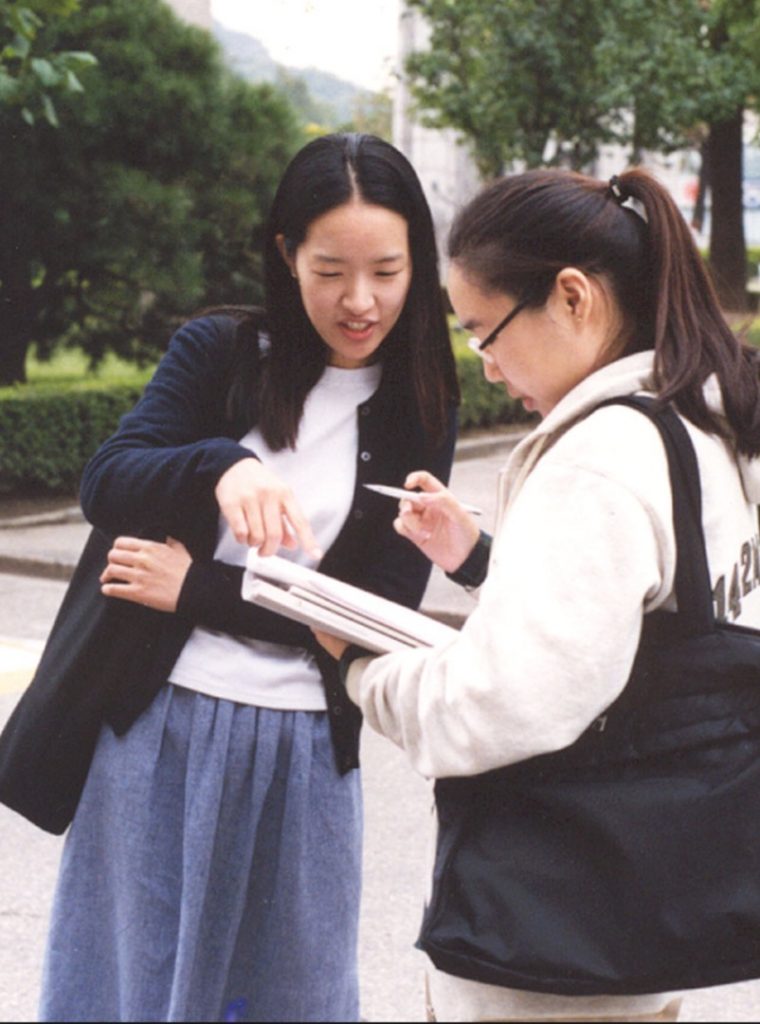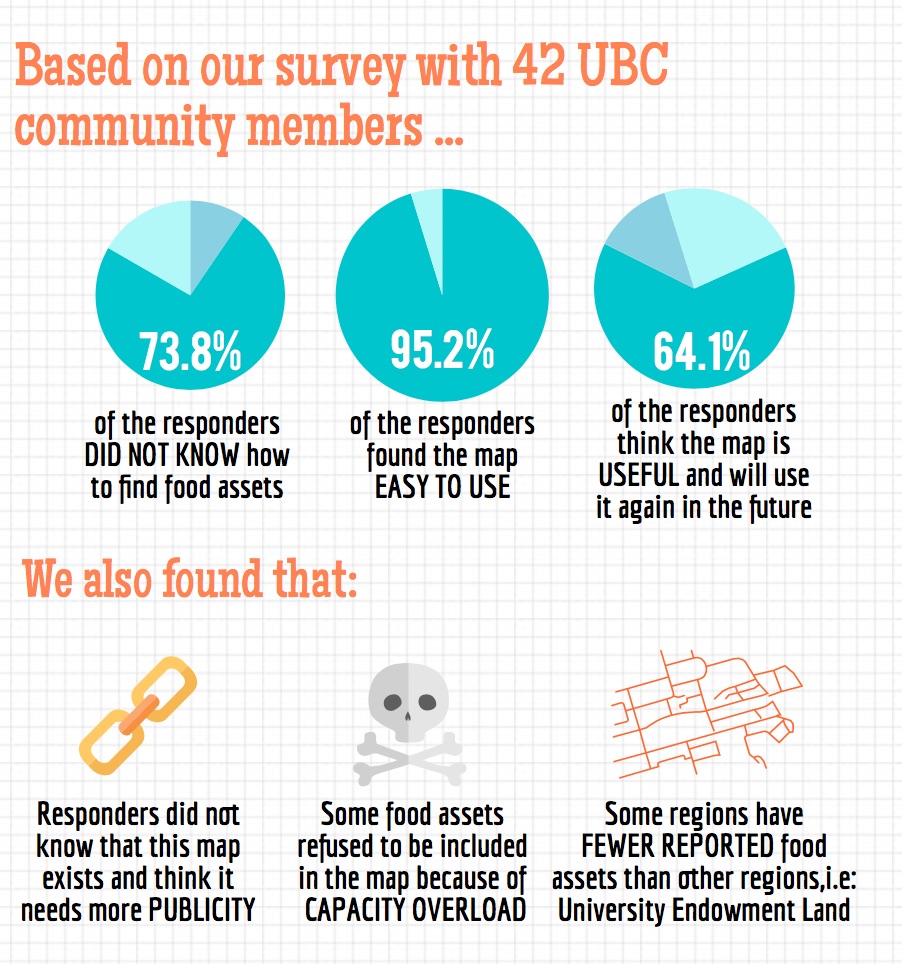Moment of Significant – What
Looking back at the three months we spent working on our CBEL project, we have gained a lot of knowledge about free and subsidized grocery food assets in our community. In addition, we learned to navigate and teach others how to use the Vancouver Asset Map. In the beginning, all of our group members were confused about what had to be done, the amount of time we had to commit, and whether or not we could rely on eachother. After attending the orientation session ran by our community partner, Teya Stephens (MSc, RD, Vancouver Coastal Health), we got a general overview of the Vancouver Asset Map. We were excited and motivated to communicate with our potential UBC community partners and survey UBC community members, because this will be an opportunity for us to get to know our community as well as to make a difference in raising awareness for food security in Vancouver.
However, there were also many uncertainties that we encountered while we were doing our CBEL project. A larger barrier was when we were trialling the map. We realized that we spent too much time trying to familiarize ourselves with this project, so there was a very short time for us to put everything into action. Some of the potential community partners did not reply to us when we approached them. Therefore, we had to contact other partners and change or modify our plans accordingly. In total, we had about three to four weeks to conduct the surveys, trial the map and analyze the data we collected. Nonetheless, we still appreciated these uncertainties as the process challenged us to use our problem solving skills. As Shulman (2005) wrote in one of our reading materials, professional education is supposed to contribute to skilled professional practice, and our learning will be limited without a certain amount of anxiety or risk during the practice process.
Survey process:

Source: http://caroldussere.com/wp-content/uploads/2010/11/
Moment of Significant – So What
As we continued working on this project, it became apparent to us that we weren’t making the same life-changing impacts on the society as we originally intended . The whole process of collecting data on assets and feedback on the map took longer than expected, leaving us little time for further development for the project. There were even cases where people that we contacted did not get back to us at all. It felt like everything moved very slowly, and we started to become more and more discouraged with little excitement left for the project.
However, Will enlightened us during the lecture this week. His words of wisdom caught our attention. He spoke about his own experience in working on his projects: a good change is a slow change, and we must be patient. This resonated a lot with our group and established a lasting impression. We came into the project hoping that our work would make a huge difference in the battle against food insecurity. But in reality, we were given small tasks that seemed to minimally affect the problem. Will’s pep talk made us rethink our position. As a group, we began to appreciate the “small victories” that we won on this journey and to think more positively. Although we did not make as large of a difference as initially planned, we believe that we made a lasting impression on our community partners and those that we surveyed.
The results from survey:

Moment of Significant – Now What
Our group’s CBEL project is nearing its end, but the learning process will continue. We want to share our understanding and findings that we collected on the free or subsidized grocery food assets and the Vancouver Asset Map with our community members and community partners by presenting our infographic at the UBC Nest. We would also like to keep our positive attitude for future projects and appreciate every small victory that comes our way. In addition, the problem solving skills, team bonding skills, and communication skills that we learned from doing surveys and trialling the map will help us succeed in future academic and career pursuits.
For future LFS 350 students and other students doing CBEL projects, we would advise them to not spend too much time waiting for instructions and gathering background information. Instead, we recommend them to be more proactive by planning ahead and leaving more time for the action tasks. Going through the practice process will help the students learn skills that they are not able to learn from lectures alone.
References
Shulman, L. S. (2005). Pedagogies of uncertainty. Liberal Education, 91(2), 18–25. Retrieved from http://files.eric.ed.gov/fulltext/EJ697350.pdf